You are invited to meet our new CEO
The Agri-Food and Biosciences Institute (AFBI) announces the appointment of Professor Elaine Watson as Chief Executive.
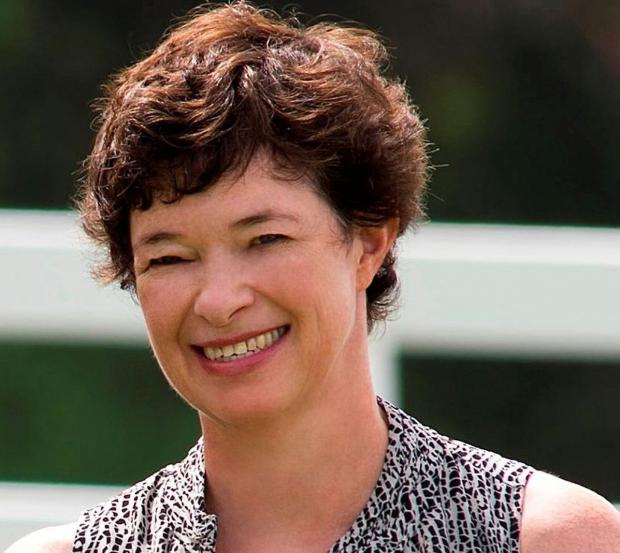
Professor Watson will take up post on 1 June 2016 following the retirement of Professor Seamus Kennedy. In welcoming Professor Watson to AFBI, Mr Colm McKenna, Chair of the AFBI Board said, “Professor Watson brings a wealth of scientific and management experience to the role. My Board colleagues and I look forward to working with Elaine as we seek to build further on AFBI’s international reputation for excellence in science in support of the local agri-food industry.” Read more ...
AFBI Director urges industry refocus on grass
Dr Sinclair Mayne, Director of the Agri-Food and Biosciences Institute’s Sustainable Agri-Food Sciences Division, has challenged the local livestock industry to refocus on grass.
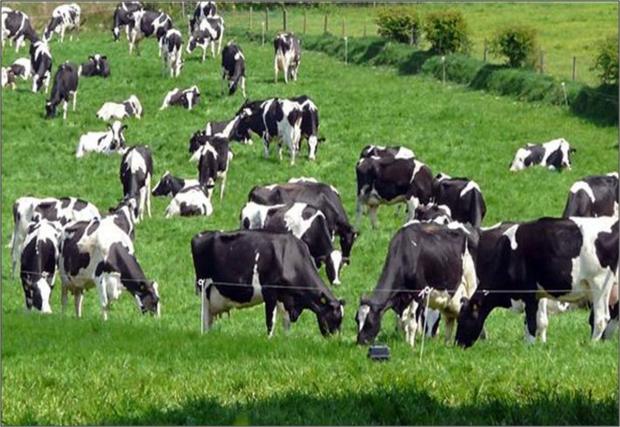
Speaking ahead of AFBI's Open Meeting to be held at AFBI Hillsborough on Thursday 2 June, Dr Mayne said, “Given the current unprecedented crisis across all livestock sectors as a result of the downturn in global markets, we need to focus on driving down the costs of production, rather than increasing output or undertaking further expensive capital investment”. Read more ...
AFBI at the Balmoral Show 2016
Grass Bred, Grass Fed was the theme for the AFBI stand at the 2016 RUAS Balmoral Show, covering a wide range of topics including seed, growing, silage, ruminants, meat and food.
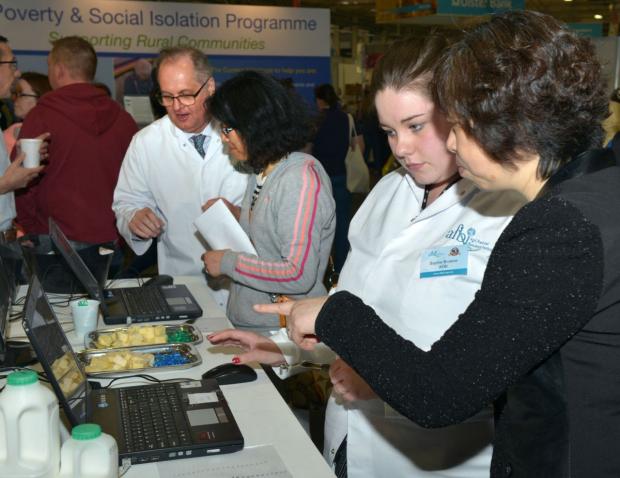
AFBI also celebrated 10 Years of scientific excellence with a Wildflower Seed giveaway to promote diversity and raise awareness of the plight of the pollinators. Read more ...
Place in FINAL for AFBI’s Purple Magic Potato
Purple Magic, a new breed of Northern Ireland potato with high anthocyanin content, has reached the FINAL of INVENT 2016 thanks to AFBI innovation.
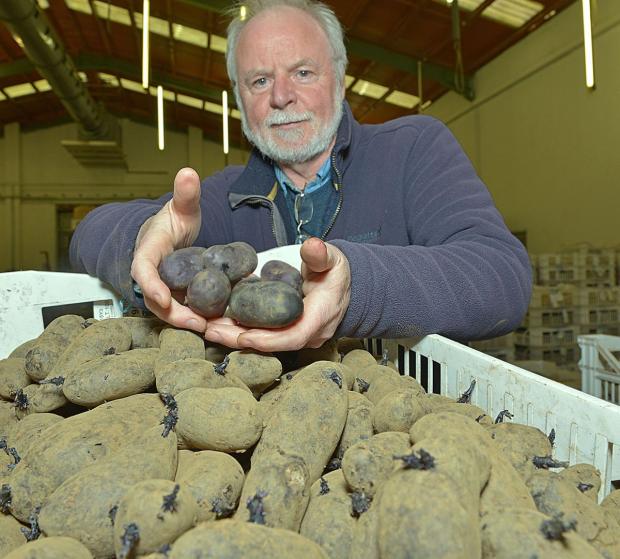
More recently, with a growing awareness of the positive health benefits of increased consumption of highly coloured fruit and vegetables and the range of products being offered by supermarkets Paul invented a novel potato variety that would appeal to modern consumers. Read more ...
AFBI awarded funding for innovative pig research
The Agri-Food & Biosciences Institute (AFBI) has received a prestigious funding award from the European Commission Horizon 2020 scheme.
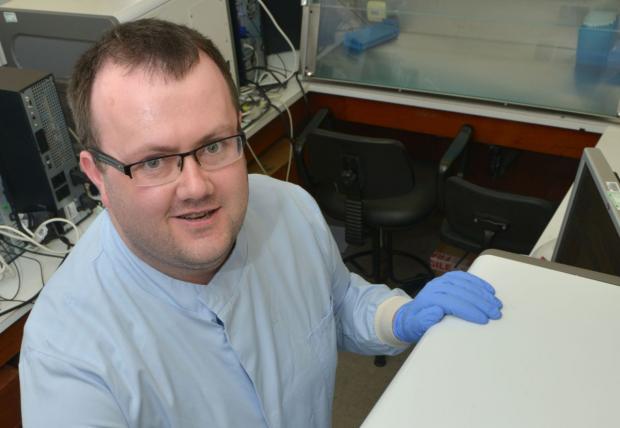
A Marie Skłodowska-Curie Individual Fellowship has been awarded to allow a visiting scientist, Dr P J Collins, to work and train at AFBI for the next two years. Dr Collins will work in the porcine virology laboratory, headed by Dr John McKillen, within AFBI’s Veterinary Sciences Division.
Dr Collins will be applying state-of-the-art technologies to identify new or emerging viruses in pigs to help the agri-food industry’s preparedness for future threats. Read more ...
Career change for AFBI Chief, Seamus
Professor Seamus Kennedy, who will bow out of his lead role in AFBI in June, is well-known both locally and internationally as a ground-breaking veterinary scientist and a prolific author and researcher.
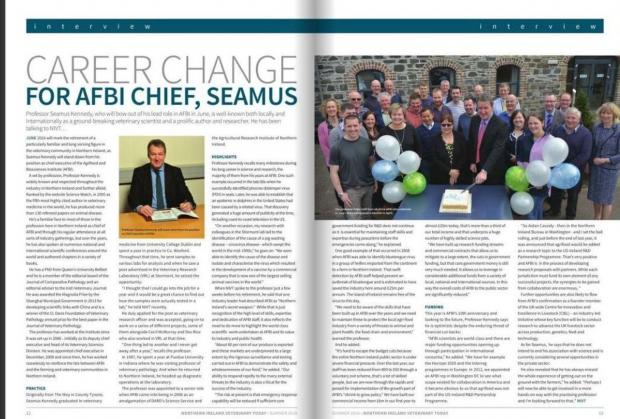
June 2016 will mark the retirement of a particularly familiar and long serving figure in the agri-food and veterinary community in Northern Ireland as Seamus Kennedy will stand down from his position as Chief Executive of AFBI. Read more ...
EAAP Conference highlighted
AFBI’s Dr Sinclair Mayne gave a short presentation on the benefits of attending Europe’s largest animal production conference to the Irish Farmer’s Journal breakfast event at the Balmoral Show recently.
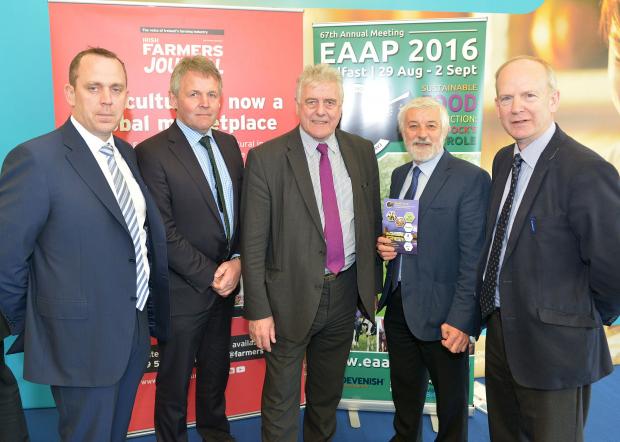
The event is being held at the newly extended Waterfront Conference Centre in Belfast from 29 August to 2 September and is expected to attract upwards of 1300 delegates from 66+ countries. Early bird prices are available for delegates until 30 June. More information is available on the EAAP website
Meet the Scientist - Dr Archie Murchie
This month Dr Archie Murchie AFBI Entomologist talks about his role.
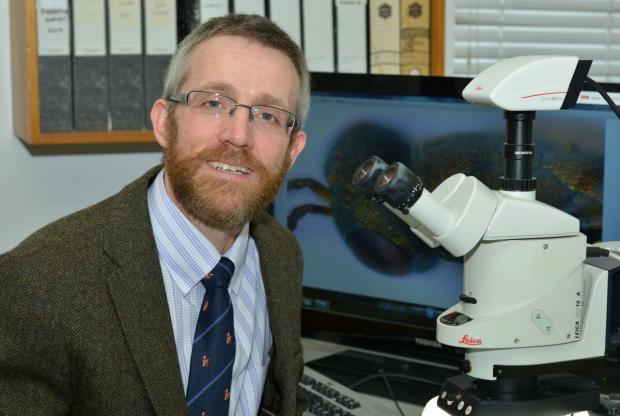
My main interest is in integrated pest management, which is not about killing pests but rather managing them in the most sustainable manner. Nature is incredibly robust and there is always a level of natural pest control within a crop, provided by predators, parasitic wasps and pathogens. We need to learn to use this control (which can be effectively free) in harmony with direct interventions if necessary.
Read more ...
